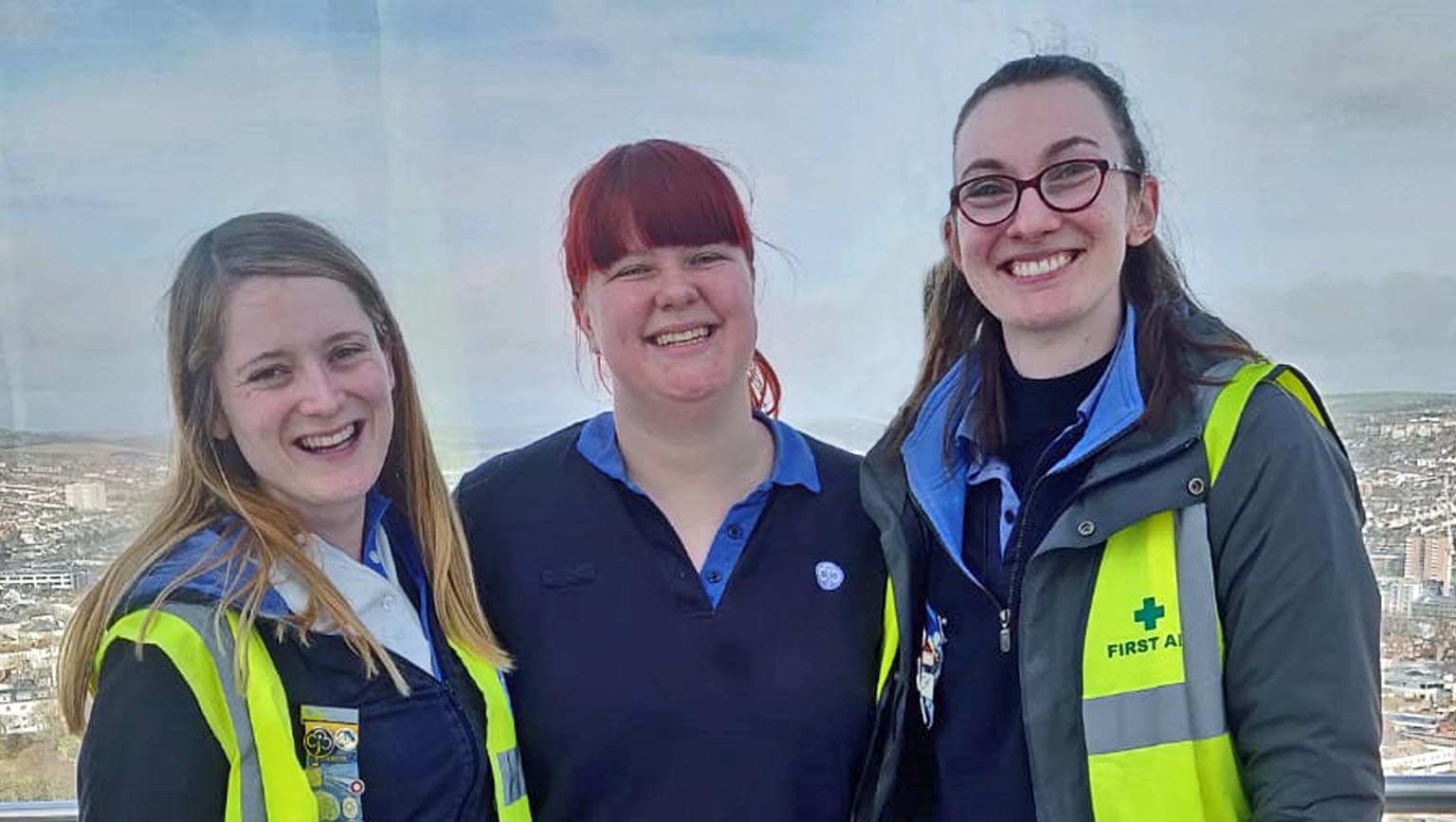

Emotional Support Champions:
St Pancras Division Girlguides
- Interview: Rosie McCrum
- Photos: St Pancras Division Guides
- Covid Champions Awards
Safe Space in a Storm
When lockdown suddenly became a way of life last March, local Girlguiding leaders Tash, Amy, Kate and Lizzie were determined to continue to support the girls in the St Pancras Division throughout.
Every week without fail, they hosted hectic Zoom meetings complete with team breakout rooms, badge-earning activities, amusing attempts at group singing, and a pause at 8pm for everyone to go outside to bang pots and pans loudly for the NHS.
The sessions were a reliable safe virtual space as the nation moved through the uncharted waters of Covid-19. They proved as much an anchor of weekly refuge and familiarity for parents as for their children, the sight of a screenful of smiling Guides every week deeply moving to socially-starved families, just as much as it was great fun.
All of these leaders are volunteers with their own busy professional lives. Tash is a final year medical student, Amy a Maths teacher, while Kate is a lawyer and Lizzie a researcher looking at reading development in young children.
For all of them, Guiding offers some light relief after the demands of a day at work, but there’s a lot more to it than that. Rosie McCrum speaks to them all about responding to a crisis for their strong community.
Emotionally supporting ourselves and each other throughout the lockdowns has been as crucial as it has been challenging. From experience, Tash, Amy, Kate and Lizzie probably know this better than most. When I meet with them over Zoom, I’m greeted by four open and beaming faces.
“Girlguiding is the largest organisation for girls and young women in the UK with over half a million members,” says Tash, the powerhouse behind the team. “We do lots of different weekly activities and, when restrictions allow, weekend and residential trips for the girls to have fun, learn new skills, earn badges and go on adventures together.”
The lockdowns have naturally caused some difficult consequences for the girls: “they’re feeling much more isolated than before, cut off from peer and family networks, especially living in London. And this has been the case for many of the parents as well,” Tash reflects.
Emotional support is obviously much harder to provide through a screen, but she tells me that they have been doing a lot of work with the girls around self-care and what that means. “Because they’re not in school it can be really difficult for them to access services when they’re struggling, but we can signpost them to different places. They know that we are there to support them and they are there to support each other.”
Kate describes how the girls often stay on the call at the end of meetings because they view it as a safe place where they can share what they’re going through, even if that’s over Zoom. “We’ve seen some issues around school, confidence and friendships. When you’re twelve, not being able to see your friends is a really big deal and affects your confidence. The way friendships change at that age anyway is massive.”
When you're twelve, not being able to see your friends is a really big deal
Kate Tweet this
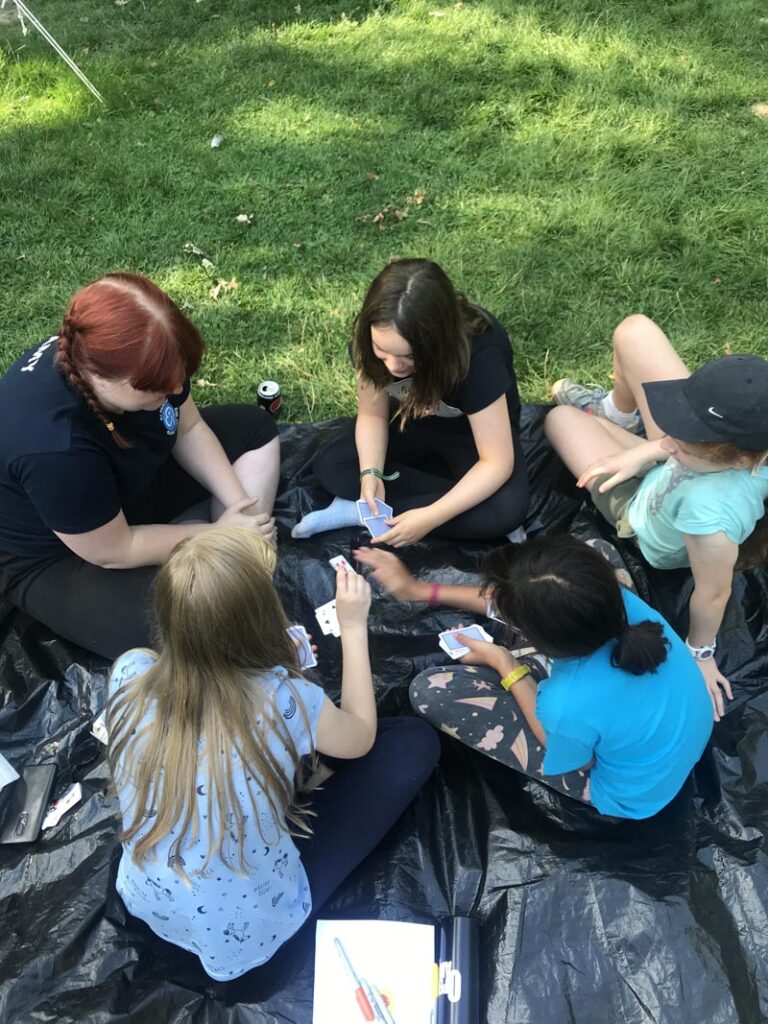
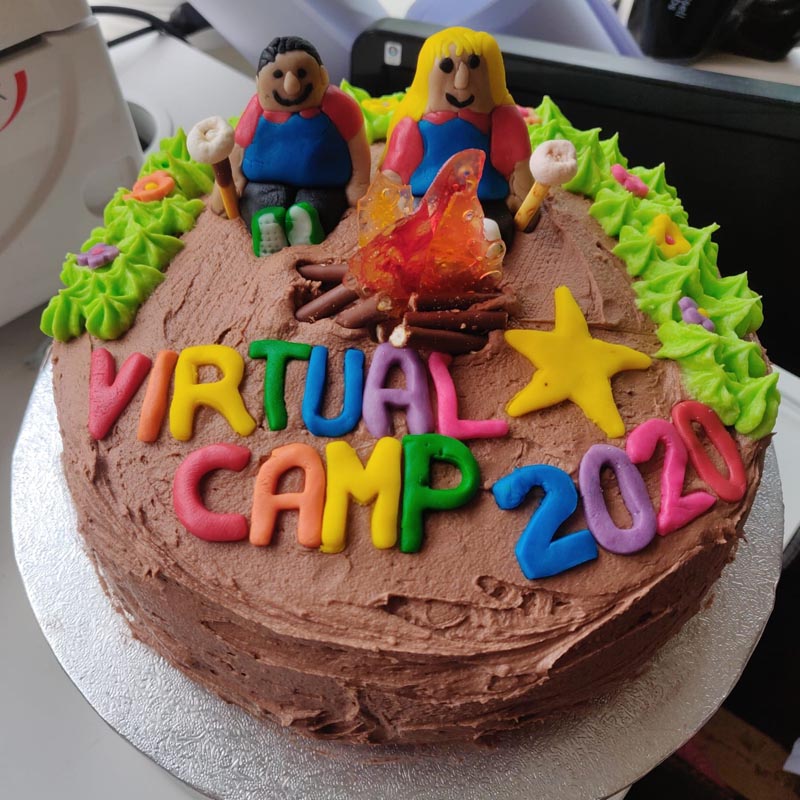
The Privilege of Pure Moments
To help support the girls through these challenges, the leaders have been finding other ways to reach out, like doing home drop-offs of activity packages, one-off events, as well as writing to parents and speaking to them on the phone. Stronger relationships with the families of the girls have materialised from these efforts.
Continuing to support the unit as much as this has not been without challenges and there have been complications around accessibility. “We’ve had to think creatively about how we can continue to provide something for everyone,” says Tash. “Lizzie’s become the master of anything you can do with a toilet roll. We’ve probably done at least six activities with toilet rolls: mini golf courses, rockets”, she laughs. “And we’ve got plans to make space suits!” Lizzie adds. Their perseverance and genuine care is deeply warming.
What drove them to make such an effort? “We know the girls really well, and seeing how much their lives have changed, how difficult that must be when you’re young, and how well they are coping with it, was motivating for me,” Tash says. “There was so much talk in the beginning about this idea of your community coming together to support you, but what really is your community? How do you access it? For the kids, we were the people who could support them.”
The weekly meetings have also been a ray of light for the leaders themselves, Amy admits. “Seeing each other and seeing the kids when it’s been a tough week – or a tough nine months – is really quite powerful. It became the punctuation of my life for a long time because I wasn’t exactly going anywhere or doing anything else.”
I ask them if there have been any particularly memorable or moving moments. From their immediate reactions it’s clear that there is a lot of laughter and joy shared amongst the group. “I’m trying to think of something that we feel is acceptable to bring up in public!” Kate chuckles. “Sometimes we’ve been crying with laughter. They are very creative and have written some very funny poems,” Lizzie tells me. “We’ve also had hilarious moments playing taskmaster. One of the tasks was putting the biggest thing you can on your head. There are these really pure moments in what are quite dark times for a lot of them, and for a lot of us as well”, Tash continues.
Amongst the hilarity, Amy expresses a deep admiration for the girls in the unit and their conscientiousness. “Often we have conversations about big issues and they’ll come out with such insightful and kind things. I am amazed by them constantly. That’s why all of us do it in the first place: it’s such a privilege to get to see what they come up with and what they’re capable of.”
I wish I could tell everyone how amazing teenagers are
Amy Tweet this
When someone joins Guides, they are invited to make a ‘promise’. Part of this promise involves helping others and serving the community. Lizzie tells me how they have encouraged the girls to find new ways to ‘live their promise’ despite the lockdowns, by doing things closer to home, like helping out around the house or offering emotional support to friends and family.
“As the promise shows, we are passionate about getting them to help in their community in a variety of ways, such as advocacy work.” Amy tells me that the most popular badges the girls do are the ones to do with advocacy and activism. “They’re always writing letters to people, doing campaigns, making t-shirts with slogans on them. They’ve been out weeding to stop the council using weed killer. The things they come up with and do are amazing.”
In the summer, the government considered suspending free travel for young people in London, so the Guides ran a small campaign creating posters and writing a letter to local leaders. Other regular initiatives involve going to local care homes over Christmas. Obviously this wasn’t possible this year, so the unit worked with Age UK Camden making cards for people who were shielding and taking part in a nationwide project involving quilt squares, decorated on the theme of community. The squares were then used to make a big banner as part of an intergenerational project that will be displayed in day centres. “It’s all about trying to get them to think about how other people are experiencing lockdown, as well as supporting them. It is really important that they’re always thinking about others as part of the promise.”
I ask if there is anything they’ve learnt from being team leaders that they wish everyone knew. “I wish I could tell everyone how amazing teenagers are.” Amy says. “I think a lot of people have a very particular view and it’s wrong. They have so much to offer in terms of already being really interesting, clever, passionate individuals – if you bother to talk to them like they are. I think some people miss that. That’s my main takeaway from Guiding. We are really lucky to get to hang out with them.” Kate nods, “they really care. They care about issues in their community and about global issues. They want to do something about it and they want to be listened to.”
“Kids just need a space to let that amazing part of them shine. And I think so many of them find that, particularly now, a bit difficult. School is all online and it’s hard for them to really find a place to be themselves. In Guiding I hope a lot of them have found that space. Every one of them has something so special and so incredible to give,” Tash continues. “You want them to be running the country, you feel like they should be running every organisation.”
What would the leaders say to their younger selves, when they were the age that the Guides are now? “For me, it’s that you don’t have to stick to one set path,” Kate reflects. “When I was growing up, I felt that there was this expectation that you do GCSEs, A Levels, university and then you go straight into a professional job, with no kind of deviation.”
When the girls ask her about her work as a lawyer she says to them, “you don’t have to follow that set path. Do what it is that interests you, not what other people are telling you to do. You’re not on a straight trajectory. There are so many options out there. Have a go and if it doesn’t work out you can always try something different.”
For Tash it’s about being true to yourself: “your values are the thing that is most important about you. Not your grades, not what other people think about you, but the values that you hold true.” She tells me about iScore, a task Amy created to alleviate some of the pressure the Guides feel when it comes to their grades. “It was getting them to think about all the other things that they score at.”
Amy says, “you’ll find your niche and your people. I think I was quite lonely as a young person, I wasn’t particularly happy, but if you stick to your values and are true to who you are and what you care about, you find people. Guiding has been the way that I’ve found my people.”
Lizzie pauses, “I think the three of you have covered it. It’s just finding the thing that really interests you and that doesn’t have to be school, it doesn’t have to be a particular subject or a particular job that you’re going to do, but following what interests you and really throwing yourself into those things. Go for it.”
What emerges from talking to these leaders is that the need for human connection can endure through some of the darkest and most difficult times. The care that Tash, Kate, Amy and Lizzie have for their unit, and the immense kindness and understanding that they have shown the girls and each other, is a moving and uplifting reminder that community exists, and is in many ways flourishing, even when we can’t connect in the ways we might want to.

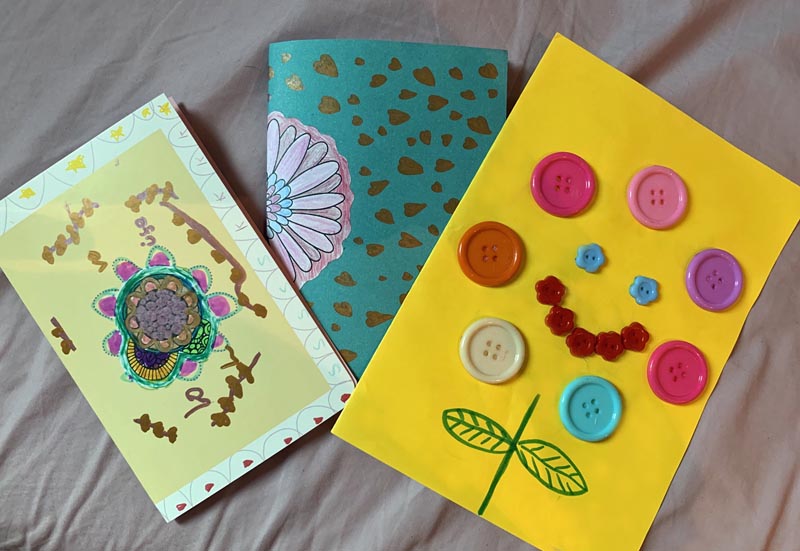
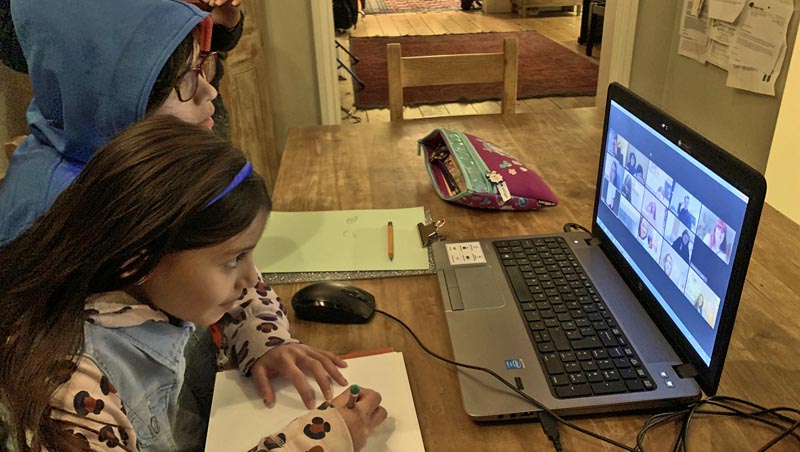
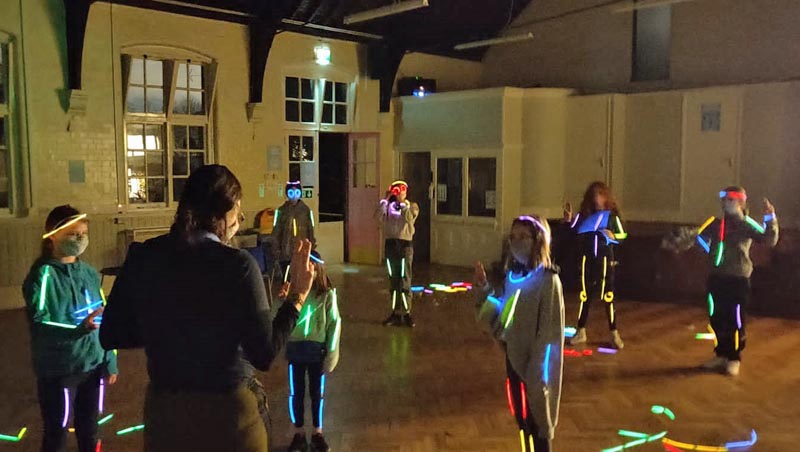
Share this with friends
More Covid Champions
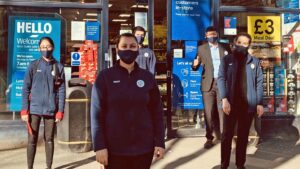
High Street Heroes: The Team at Tesco, Swains Lane
How the hard work and long hours by the staff was truly appreciated by locals during the pandemic
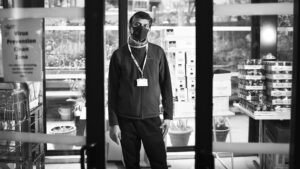
Diversity & Equality Leaders: Age UK Camden
Abul Choudhury tells us how the charity managed lockdown for Camden’s most vulnerable, from food parcels to vaccinations

Care Champion: Carolyn Hayman for C4WS, Somers Town
When she saw media reports of women losing jobs and homes as a result of the Covid shutdown,


